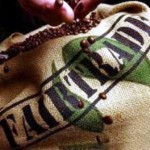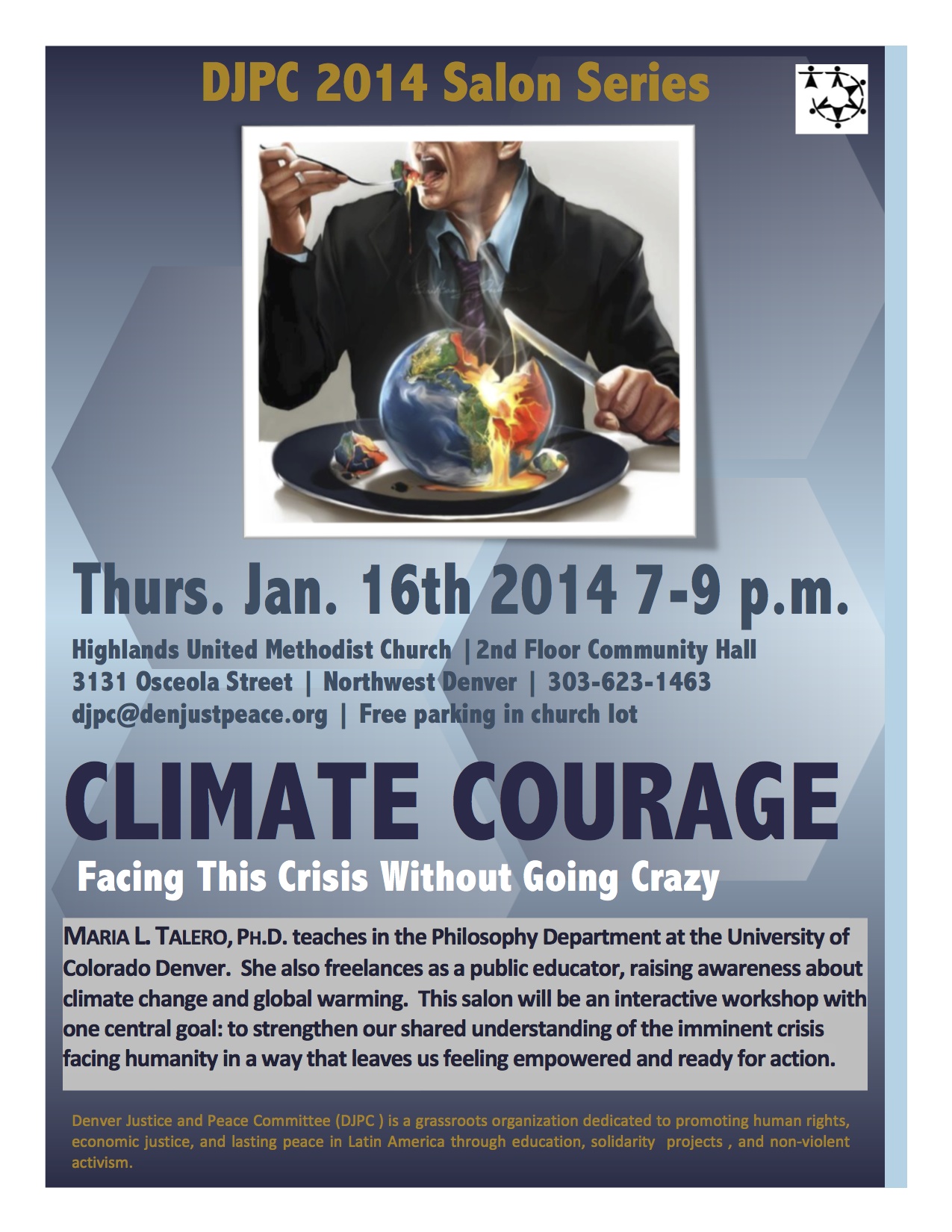Catherine Raveczky, one of the authors of DJPC’s Global Solutions to Violence curriculum, facilitated the evening’s discussion and engaged our participation through the popular education format. We started the evening by participating in a “Silent Thought Museum” where we walked around the room, viewing different visuals, and writing down our comments/reactions and reflections to them. The visuals included pictures of child labor, graphs, quotes, and cartoons. We then did a map activity where we looked at the label on our shirts and placed a post-it note on the country where our shirts were manufactured. There were many post-it notes in South East Asian locations, which is accurate considering that 60% or our apparel is assembled in Asia. Examples of locations include, Serbia, China, Vietnam, Hong Kong, Thailand, El Salvador and Indonesia. What is interesting about this is that for many products, materials are exported from the United States, assembled elsewhere, then shipped back to us. In addition to clothing, Catherine Raveczky had information on the locations of the top 5 exporters of coffee, bananas, sugar, tea, and petroleum.
Raveczky, one of the authors of DJPC’s Global Solutions to Violence curriculum, facilitated the evening’s discussion and engaged our participation through the popular education format. We started the evening by participating in a “Silent Thought Museum” where we walked around the room, viewing different visuals, and writing down our comments/reactions and reflections to them. The visuals included pictures of child labor, graphs, quotes, and cartoons. We then did a map activity where we looked at the label on our shirts and placed a post-it note on the country where our shirts were manufactured. There were many post-it notes in South East Asian locations, which is accurate considering that 60% or our apparel is assembled in Asia. Examples of locations include, Serbia, China, Vietnam, Hong Kong, Thailand, El Salvador and Indonesia. What is interesting about this is that for many products, materials are exported from the United States, assembled elsewhere, then shipped back to us. In addition to clothing, Catherine Raveczky had information on the locations of the top 5 exporters of coffee, bananas, sugar, tea, and petroleum.  As of 2005, the United States was the largest producer of trash as well as the largest consumer of oil. More recently however, China has been dramatically increasing its oil consumption and may soon equal or pass U.S. consumption. The United States also consumes the most water when you look at the amount of water needed to support our lifestyle, which is interesting since our population is only about 320 million versus China’s 1.3 billion.
As of 2005, the United States was the largest producer of trash as well as the largest consumer of oil. More recently however, China has been dramatically increasing its oil consumption and may soon equal or pass U.S. consumption. The United States also consumes the most water when you look at the amount of water needed to support our lifestyle, which is interesting since our population is only about 320 million versus China’s 1.3 billion.
So much of our labor is exported to where it is the most cheap, which allows us to be consumers of cheap/low-cost goods. Countries in which the IMF loans money often undergo structural adjustment that liberalizes the economy, but is harmful to farmers and local producers who cannot compete with cheap imports from other countries. This is how many countries come to rely heavily on imports and as a consequence, have a difficult time paying back loans. There is often no blame for irresponsible lenders but on those countries taking the money, although they would not need loans if they were not in debt in the first place. Another interesting piece of information is Chapter 11 of NAFTA. It is a clause that allows corporations to sue governments if they think a government prevented future profits. For instance, if the government banned a product due to the environmental harm it caused, the corporation that manufactures that product could then sue for future profits lost.
To end the evening we watched a 20 minute film entitled, “The Story of Stuff.” The website can be found here: http://storyofstuff.com/index.php
Some alternatives/solutions attendees came up with are spreading awareness of the issues by simple conversations or posting information, such as the “Story of Stuff” film, to networking sites like Facebook where they are likely to have a wide audience. Making different lifestyle choices was another suggestion and can be done by educating yourself on fair trade issues and only buying “fair” products.


